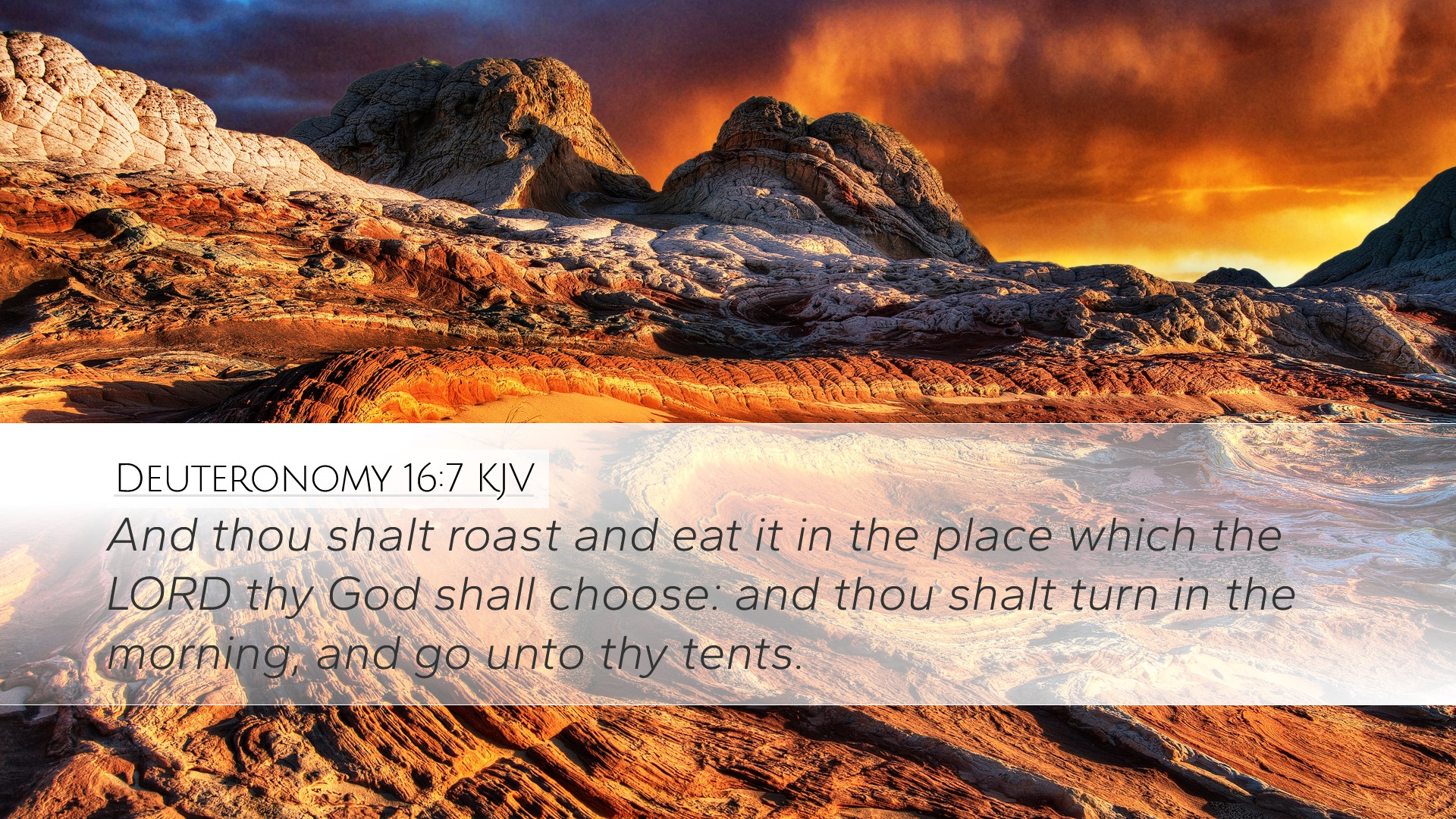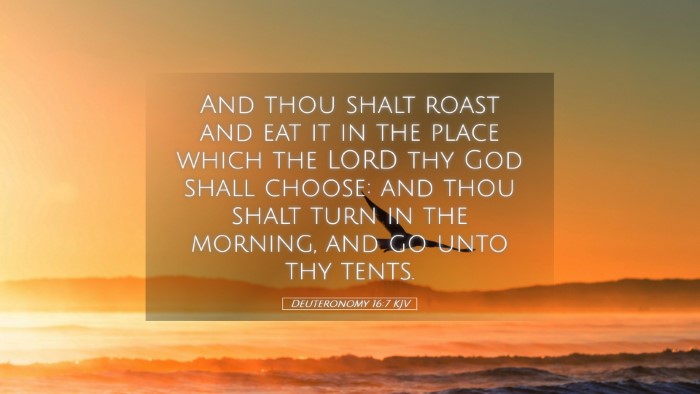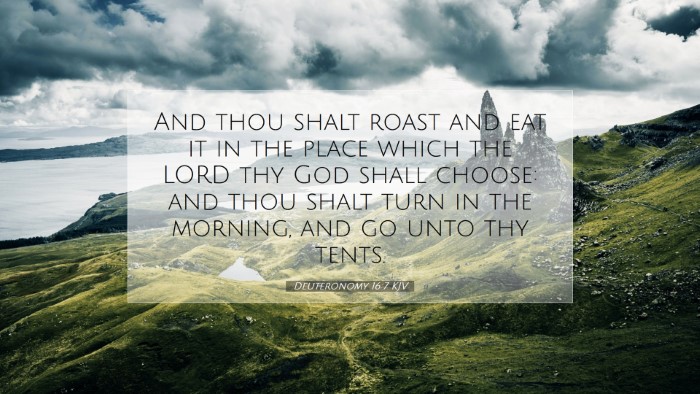Commentary on Deuteronomy 16:7
Bible Verse: "And thou shalt roast and eat it in the place which the Lord thy God shall choose: and thou shalt turn in the morning, and go unto thy tents."
Summary of the Verse
This passage emphasizes the importance of communal worship and proper observance of sacred feasts. It delineates the manner in which the sacrificial meal should be prepared and consumed, focusing on the centrality of God's chosen place of worship.
Contextual Background
Deuteronomy is primarily a series of sermons delivered by Moses to the Israelites before they enter the Promised Land. The entire book reiterates the law and covenants established by God, encouraging the people to remain faithful to it.
The chapter focuses on the feasts, specifically the Passover, which serves as a reminder of their deliverance from Egypt. The adherence to prescribed practices brings about a sense of community and continuity of faith.
Insights from Public Domain Commentaries
Matthew Henry's Commentary
Henry emphasizes the significance of eating in the context of worship. He notes that the act of eating this meal was to be a communal experience, reinforcing fellowship among the people and between them and God. "The eating of the sacrifice before the Lord was a means of acknowledging His providence and blessings."
Moreover, he highlights the importance of the time frame indicated in the verse: “In the morning”. This serves to underline deadlines in the worship process, emphasizing that a timely approach to sacred practices reflects reverence and devotion.
Albert Barnes' Notes on the Bible
Barnes focuses on the phrase "the place which the Lord thy God shall choose." He explains that this highlights God's sovereignty and authority in choosing how and where worship is to occur. The chosen place is integral to communal identity and worship experience, symbolizing God’s presence among them.
He also notes that the roasting of meat is distinct from boiling or other means of preparation, indicating a preference for purity and specific ritual observance. To Barnes, this reflects God's desire for a particular way of maintaining holiness in the worship process.
Furthermore, he remarks on the significance of the word "tents." This reminds them of their sojourn and the transitory nature of their existence while underscoring their ultimate journey toward God’s promised rest.
Adam Clarke's Commentary
Clarke articulates that the act of roasting rather than boiling suggests a less common method associated with more significant religious observance. He connects this to the idea that the preparation of sacrificial offerings should reflect the utmost respect towards God.
He further mentions that the specifics of preparation and consumption are meant to instill discipline and reverence within the community. Clarke writes that through these rituals, the Israelites are continually reminded of their covenant relationship with God.
Theological Implications
- Divine Appointment: The insistence on the Lord's choice for the place of worship underlines the significance of divine appointment in the life of the believer.
- Communal Worship: The act of sharing a meal signifies fellowship, providing a powerful symbol of unity in God's family.
- Holiness in Worship: The specific instructions signify the importance of approaching God with reverence and purity, reminding believers that how they worship matters.
Application for Today's Believers
In light of Deuteronomy 16:7, today's believers are called to consider how they approach worship and the meals shared in the context of fellowship. The teachings remind them to prioritize communal rituals that foster unity and reverence. An intentional focus should be on God’s presence in their worship, celebrating His provision and salvation with sincerity and joy.


